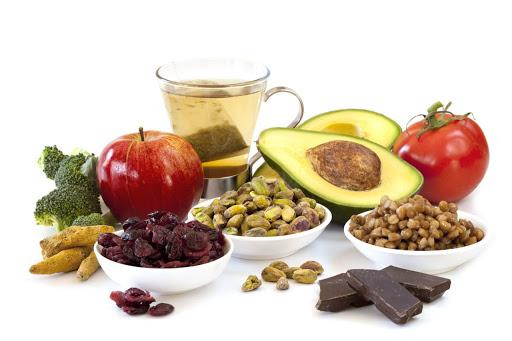
The diet affects the intensity of the rash and the production of sebum. Pathogenesis of acne is based on hyperactivity of the sebaceous glands, change, keratinization of pores and multiplication of acne bacteria. The causes of excess activity of the sebaceous glands can be associated with hormones, and with certain components of food.
So, when talking about nutrition, in order to avoid excess sebum and acne, you need to choose foods that will help reduce the amount of sebum production and make it less dense. Here are the products must be in the diet for problem skin:
1. Carrots, spinach, cabbage leaves are foods containing vitamin A (retinol). With the daily rate of retinol, the amount of sebum produced in the body is normalized. The less it is, the less you will provoke the development of acne;
2. Melissa, sage, thyme, rosemary - these herbs contain rosemary acid - a powerful antioxidant and anti-inflammatory component. For acne, doctors often prescribe antioxidant-rich foods because they inhibit cellular mediators of inflammation and fight free radicals. Another good source of antioxidants is kelp;
3. Oysters, walnuts, almonds, peanuts, pumpkin seeds - products are rich in zinc - a trace element that helps the skin keratinization process, participates in creating of a protective barrier and promotes the skin regeneration (this is important for scar healing), and is also an antioxidant;
4. Blueberries and broccoli are foods that reduce glycation: sugar molecules attach to fat and protein cells. This leads to their aging - the deepening of wrinkles and a decrease in moisture in the dermis. In addition to blueberries and broccoli, contribute to the inhibition of the glycation process a brown algae and green tea;
5. Lean meat (beef, lamb, chicken), especially if steamed. The level of hydration of the facial skin and its acid-base balance depend on the consumption of saturated (about 5% of the daily calorie intake) and monounsaturated (20%) fatty acids;
6. Flaxseed oil and fish (herring, mackerel, salmon, tuna, sardines) - eating fish rich in polyunsaturated fatty acids reduces the likelihood of acne formation. Fatty acids have an anti-inflammatory effect and are part of the membranes of all cells in the body;
7. Tomatoes. Lycopene, contained in their composition, affects the normalization of hormonal levels;
8. Whole grain cereals contains vitamin E, a powerful antioxidant, zinc and selenium - a powerful antioxidant that is best obtained through food.
When following a diet that affects skin condition, it is very important to eat small amounts of food, as overeating negatively affects the production of excess sebum.
If you're struggling with acne, keep a food diary regularly. Look for the connection between nutrition and abrupt changes in the skin of the face in order to test your skin's response to eating certain foods.
Leave a Comment